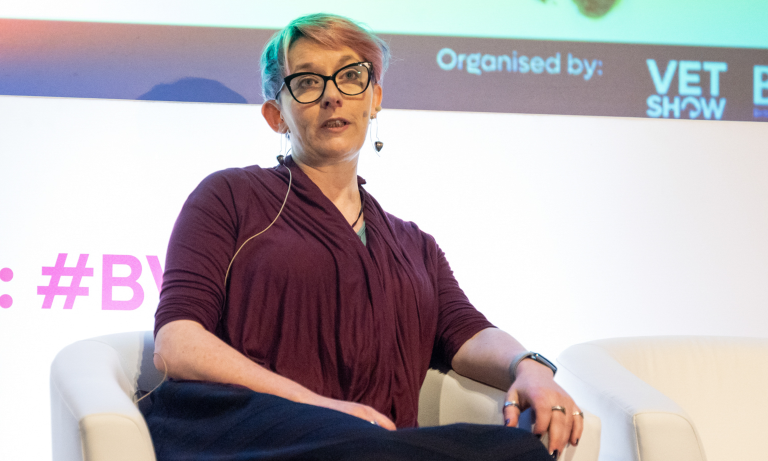Brucella canis: what vets need to know
14 Feb 2024
22 Feb 2024 | Claire Hodgson
To celebrate LGBT+ History Month, throughout February we are featuring Q&As with some key role models. Small animal vet and BVCIS founder Claire Hodgson shares her experiences working in practice and acting as an advocate for marginalised groups in the profession.

What inspired your path into the veterinary profession?
I’m one of those vets who can’t remember wanting to be anything else but unsure where it came from. This caused me issues when things got tricky both at vet school and in my later career as I questioned whether I had actually given my career choice enough thought. I grew up at the bottom of the Yorkshire Dales. We had small furries as pets and cats when I was a bit older. I was an avid reader and got through all the James Herriot books and watched the TV series (the original, I am that old now).
What has been the most challenging part of your career?
I have had a somewhat varied career. I graduated thinking I would be a farm vet, but after some time in mixed practice, I accidentally became equine only. In 2016, I got ill and was subsequently diagnosed with ME/CFS (Myalgic Encephalitis/ Chronic Fatigue Syndrome), which left me disabled by chronic pain, chronic fatigue and post-exertional malaise from relatively low-impact activity, all impacting my sleep. This forced me to reconsider what I could do. I felt lost and trapped as so much of my life and identity was tied up with me, the equine clinician. Ultimately, thanks to advice and support from amazing friends and coaching to help me find some direction, I was able to transition from equine clinician to small animal clinician alongside developing non-clinical roles.
What has been the best part of your career so far?
If you had told me in 2016 what I would be doing now, I would have laughed at you. I couldn’t imagine I would now list myself as a true portfolio professional and director of 3 organisations. In 2018, I co-founded the Veterinary Spoonholders Facebook community for anyone in the profession with chronic illness. This has grown to a community of 2.8k members with all sorts of chronic illness, disability and/ or neurodivergence, providing a safe space for people to find support and generally realise they are not alone. It quickly became clear that we needed an organisation to give a voice to our community, and in 2021, we launched British Veterinary Chronic Illness Support (BVCIS) with the goal of providing support and advocacy for our community and education around the issues they face. Since then, we have worked closely with our colleagues at BVEDS and BVLGBT+, delivering talks and training sessions together, acknowledging the similarities in the challenges different marginalised groups face and the fact that many of us actually have a place in multiple communities.
Last year, six of us came together to launch the veterinary profession’s first equity, diversity and inclusion consultancy. We provide tailored, intersectional training to all areas of the profession. I also decided that it was time to become more involved in LGBT+ advocacy and was proud to join the committee of BVLGBT+.
What advice would you offer to someone experiencing difficulty with their sexuality or gender identity?
It's ok to question who you are and to push back on other people's perceptions and understanding. I went to school and uni in the 90s when there was far less open visibility around all things LGBT. I didn't know that you didn't have to pick a team. I spent most of my 20s with everyone assuming I was straight, it was much easier to find men to date in a small northern town.
I never had a big coming out moment. I just shifted my narrative to now openly identify as bisexual or queer (given that I have mostly relinquished all aspects of conventional relationships). Even now, I find that many people are not comfortable without being able to put me in a box. I'm too gay to be straight, not gay enough for others and have to contend with my internalised imposter syndrome within the LGBT+ community, especially when speaking out as a representative voice. I know who I am right now and am comfortable with that, and it makes a difference. I also recognise that I am not alone in a journey of self-discovery that takes years, and it's important for others to see and understand that as well.
Get tailored news in your inbox and online, plus access to our journals, resources and support services, join the BVA.
Join Us Today